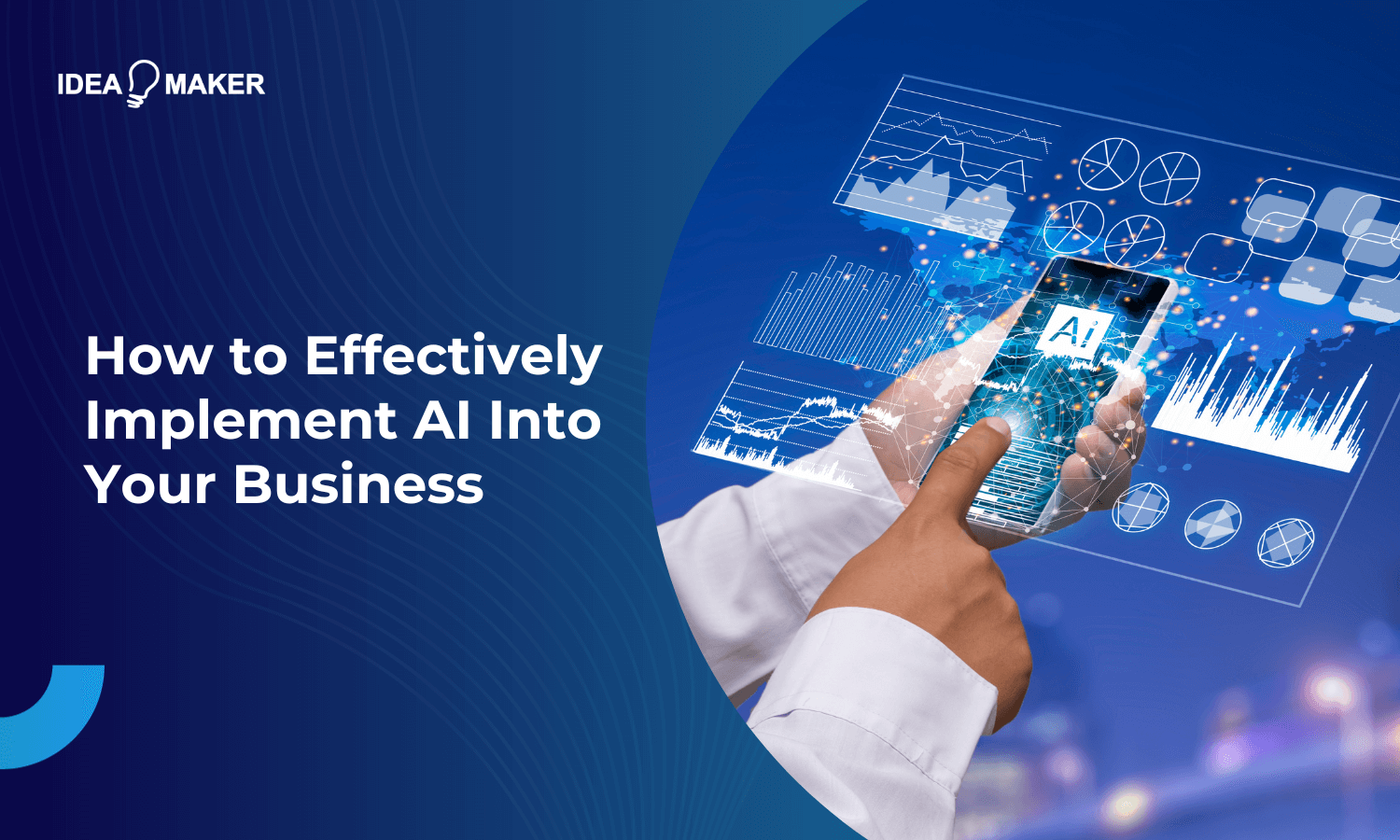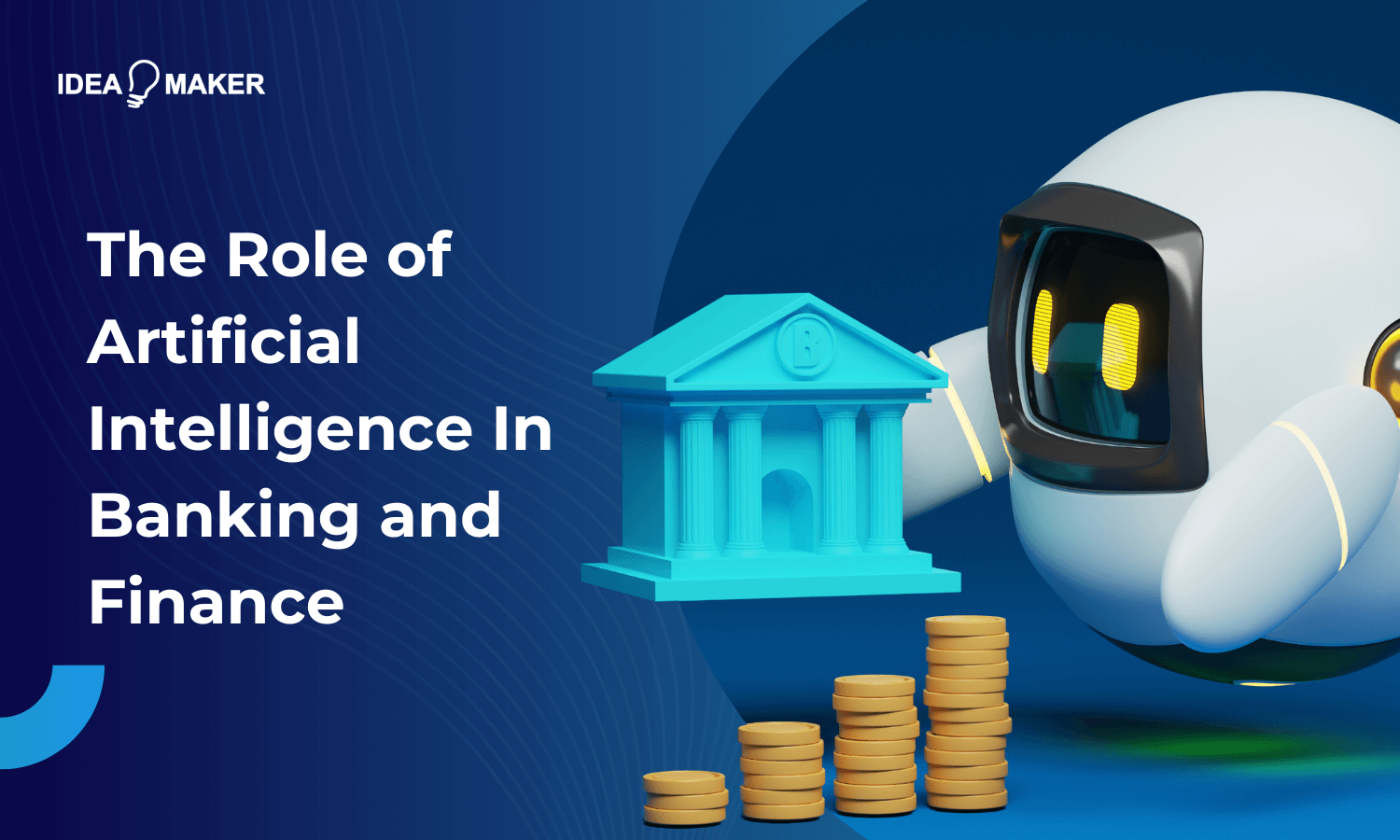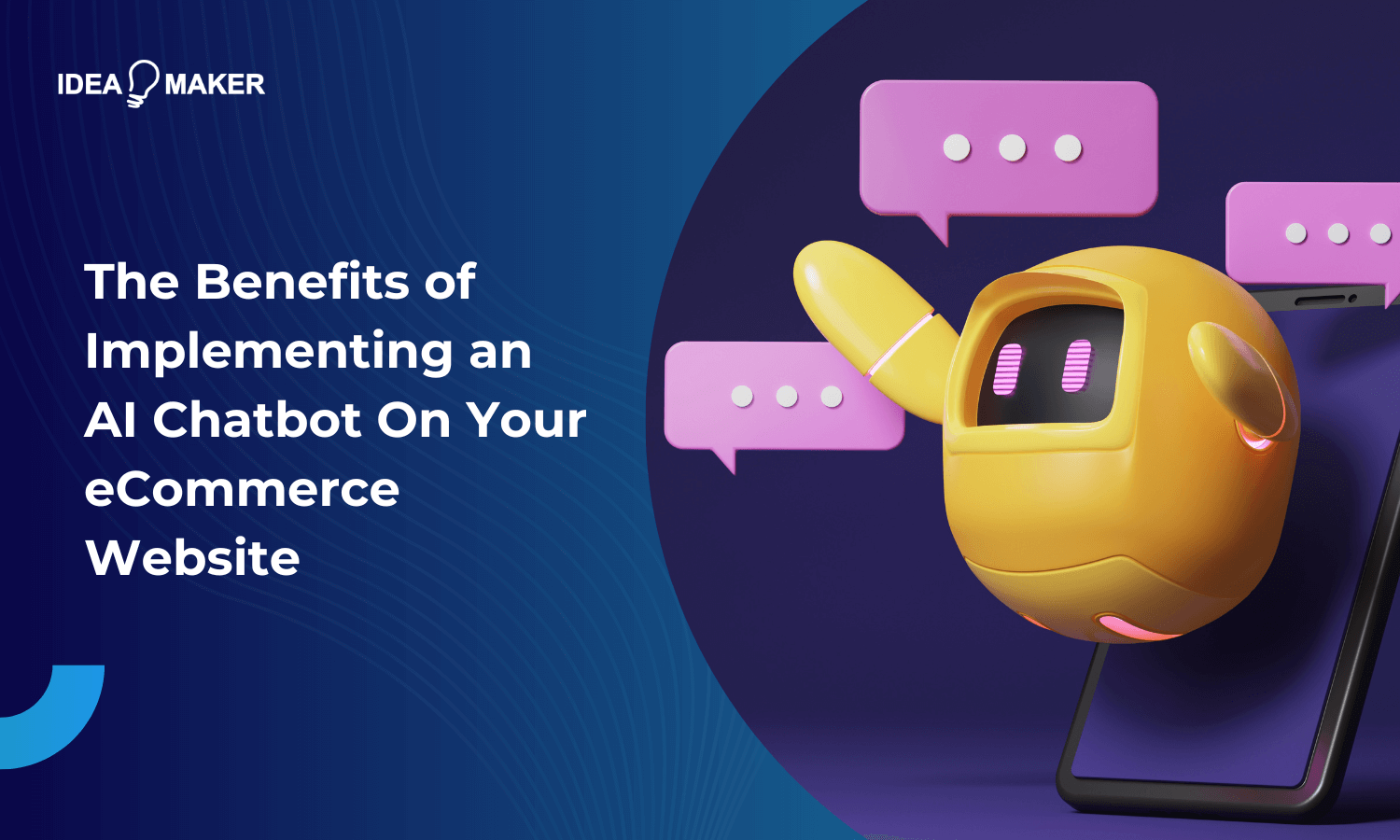Table of Contents
Did you know that over 50% of businesses plan to implement AI into their business this year? As you’ll discover in this article, there are many excellent reasons to implement artificial intelligence into your business. However, though you may be able to get your hands on some AI enterprise software, integrating it into your workflow can be a challenge.
Fortunately, in this article, we discuss the ins and outs of implementing AI into your business and outline what steps you can take to ensure a smooth transition. Keep reading to learn more about how you can get started elevating your business with AI.
Why You Should Implement AI Into Your Business
Let’s begin by exploring some of the top reasons why you should implement artificial intelligence into your business.
Improve Productivity
By using AI in your business, you can automate repetitive, low-quality, and mundane tasks that would otherwise have to be handled by a human. This means your employees can turn their focus to more important operations and high-priority tasks, enabling them to better optimize their time. Improved productivity through AI can also boost employee morale, as they no longer have to endure long-winded tasks like data entry.
Reduce Costs
By improving productivity, artificial intelligence can also help to reduce costs in saved labor. For example, instead of hiring an extra set of customer support agents to cover nighttime inquiries, you can implement an AI chatbot to handle out-of-hours issues or even replace daytime customer service outsourcing.
Reduce Human Error
As humans, we are error-prone, especially when it comes to working on data-driven tasks like data entry; oftentimes, however, these mistakes can be both expensive and time-consuming to rectify. Using AI to handle tasks that require constant precision helps to reduce human errors, positively impacting costs and business productivity.
Improve Decision-Making
Artificial intelligence can enable better data-driven decisions by analyzing datasets, identifying trends, and, crucially, interpreting the data. There are many applications available that are capable of identifying basic trends in data, but AI, with its contextual understanding of your data, can provide interpretations akin to that of human analysts. As a result, you can make more positive decisions for your business, guided by artificial intelligence.
Potential Challenges of Implementing AI Into Your Business
Although artificial intelligence is a highly powerful tool for enhancing your business, it does come with several challenges.
Employee Concerns
With 60% of people believing that AI could threaten the future of civilization, it’s likely that your employees will have some concerns about implementing the technology into your business. And who can blame them when so many jobs have already been replaced by AI, like the 4,000 in May alone? This means, as a business owner, it’s critical to reassure employees that their jobs are safe and that artificial intelligence is being implemented to assist their daily working lives, not replace them as workers.
Lack of Expertise
Although artificial intelligence has been around for decades in one form or another, it has not yet found its way into the technical mainstream. In fact, there are only just over 28,000 “AI experts” in America, meaning that, compared to the number of businesses utilizing AI, expertise is in short supply. As a result, when your business encounters issues with AI software, you may be hard-pressed to find someone with the skills to fix the issues–that is unless you work with a dedicated AI agency throughout a long-term period.
Ethical and Privacy Concerns
Of course, employee concerns constitute ethical concerns, which are a major challenge regarding AI, provoking the question: Is it morally acceptable for a computer to execute the job of a human, and is it safe for an autonomous machine to handle sensitive data? In this article, we are not here to answer these questions, but we can help you mitigate the effects of these issues among employees, as you’ll discover in the following section.
How to Implement AI Into Your Business Effectively and Ethically
Now that we’ve explored both the benefits and challenges of implementing AI into your business, let’s discuss exactly how you can integrate the technology into your workflow with minimal friction.
-
Choose the Right AI Software
When implementing artificial intelligence enterprise software into your business, it’s crucial to choose the most appropriate application for your needs. Otherwise, you’ll encounter ongoing issues, making the implementation process even more challenging. As a result, it’s recommended that you have your own AI software developed to your exact needs.
Bespoke software will allow you to have all the functionality and scalability your business needs, along with any unique workflow requirements. Unless you have the technical expertise necessary to build such a complex application, your best bet is to hire an AI software development agency. In any case, you’ll need to carefully review all your software choices to ensure that they satisfy your requirements in terms of usability, functionality, scalability, and finances.
-
Create AI Use Guidance Policy
Although AI is quickly becoming widespread, there is still a certain degree of fear and uncertainty surrounding the technology. For this reason, it’s good practice to create and enforce a clear and comprehensive AI use guidance policy, outlining how your AI software uses personal data like employee information and what tasks it will perform. You should also provide points of contact for concerns and direct employees to essential training resources.
Ultimately, an AI use guidance policy will help ease employee apprehension about using artificial intelligence in the workplace and reduce any resistance to the technology. This policy should be used in combination with the other tips on this list as a way to hold your business and employees accountable for their AI use.
-
Train Your Team
As fear often comes from a lack of understanding, thorough training is required in order to help your employees feel comfortable working with artificial intelligence. While there are many courses available online that teach the ins and outs of AI, if you’ve had your own software developed, you will need to create a training program specific to your application.
The most convenient way to create a training course is by using a third-party application like Udemy or Teachable. Alternatively, building your own through a WordPress website will offer more customization, tailored functionality, and web design, as well as security considerations unique to your business.
-
Monitor Impact of AI
Devising a method to monitor the impact of your AI software is vital for the continued refinement of your new workflow. Setting key performance indicators (KPIs), such as production goals and sales targets, is an excellent place to start. It’s also a good idea to interview employees at the introduction of your AI technology and again three months later to identify how their attitudes have changed over time.
Monitoring the impact of your AI software once implemented into your business will allow you to determine any inefficiencies, weaknesses, and opportunities for improvement, further streamlining operations. Additionally, you’ll need to be sure to update your training resources and AI use guidance policy if any significant changes to your workflow are made.
AI Solutions From Idea Maker
Creating and implementing your own artificial intelligence enterprise software is no easy feat. In fact, AI development is a highly complex field that requires expert knowledge. Thankfully, Idea Maker is here to help.
We have a team of experienced AI and enterprise software developers dedicated to elevating your business with artificial intelligence, and are more than happy to guide you through the process of implementation. So, if you’re interested in taking advantage of AI technology, schedule a free consultation with us today to learn more.












